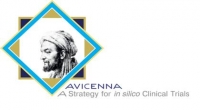The Avicenna project kicked off on 1st October 2013. The project, which is part funded by the European Commission, aims to create a Roadmap for the development of in silico clinical trials.

Currently, the testing of new medical treatments takes place in vitro – in a test system, and/or in vivo – clinical trials in living organisms, but both methods are costly, the former is often quite distanced from reality, and the latter puts both animals and humans at risk. Now, high performance computing is being harnessed to revolutionise the development of in silico (using computer simulations) to test new drugs, devices and treatments before traditional clinical trials.
As a coordination and support action, Avicenna will establish a partnership or alliance between biomedical industries and European research organisations, with the purpose of developing the technology, methods, protocols and standards required in order to make possible the use of computer simulations before real clinical trials. The aim of this will be to reduce the costs and the risks (both clinical and financial) involved in trials, and ultimately increase the rate of innovation in healthcare.
Avicenna will be designed around five large consultation meetings over the next 2 years. Each meeting is designed to bring together key experts in the field to collectively define the challenges that need to be addressed and to develop a Roadmap towards making in silico clinical trials a reality. The first meeting is to be held in Rome on the 20th and 21st March 2014.
The Avicenna consortium, is coordinated by the University of Sheffield, and the partners are Obsidian Biomedical Consulting Ltd, Lynkeus srl and the VPH Institute.
If you are interested in becoming part of the Avicenna alliance, please contact the VPH Institute Manager at manager@vph-institute.org